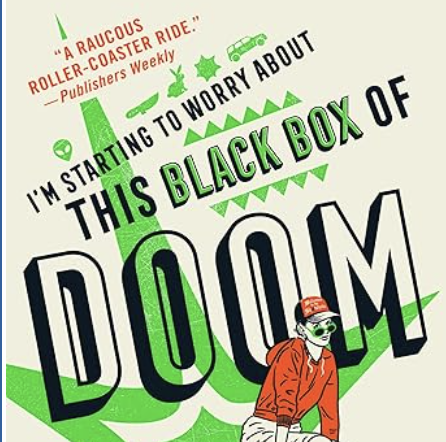The Case Against Doom
(This is a conversation between Abbott—who believes, as so many young people do today, that the end is nigh—and Ether—who doesn’t—from Jason Pargin’s novel, I’m Starting To Worry About This Black Box Of Doom, as quoted on Scott Alexander’s blog, Astral Codex Ten.)
Ether groaned and put her head in her hands. “Okay,” she said, trying again. “How about this: What do you think the world will look like in the future, post-collapse?”
Abbott thought for a moment as if picturing it. “Uh, terrified people scrounging for food and running from bandits. Rampant disease, infrastructure breakdown. All the stuff from the movies, I guess.”
“No internet?”
“I wouldn’t think so.”
“No electricity? No running water, no sewage? No hospitals?”
“Probably not.”
“Got it. So, what I’m about to say isn’t an opinion, it’s not a matter of personal philosophy or politics. It is an objective fact that what you’re describing is how virtually all humans have lived through all of history. Until, that is, about thirty years ago. Just in the time I’ve been alive, somewhere between two and a half and three billion people got their first access to clean water and toilets. That’s billion, with a B. About that same number got electricity in their homes for the first time in their lives. Worldwide, infant mortality has been cut in half, illiteracy has dropped almost as much. Suicides are going up here in the US, but worldwide, they’ve dropped by a third—again, that’s all just in my lifetime. Basically, every positive category has skyrocketed: access to communication, paved roads, motorized transportation, international travel, climate control, medicine….
“Okay, it sounds like you’re talking about a bunch of good stuff that happened in China and India and—I don’t know. A bunch of poor countries I’ll never visit.”
“I’m talking about how your entire life span has been spent in a literal reverse apocalypse. I’m talking about billions of people who lived in what you would consider post-collapse conditions have had those conditions remedied, gaining roofs and lights and safety. A human’s chances of dying from famine or natural disasters are as low as they’ve ever been, ever, in the history of the species. It’s been nothing short of a worldwide miracle that makes everything Jesus supposedly did in the Bible look like party tricks. And people like you and me and others in our demographic describethat state of affairs as the world being ‘on fire.’ I think that’s a bizarre mass delusion and that there’s a very specific reason for it: we’ve been trained to cling to a miserable view of the world to the point that we think that not seeing the world as miserable makes us bad people. When I spent those months doing hallucinogens, I didn’t suddenly see the beauty and harmony of nature; I saw that humans everywhere were working really hard to make life better for other humans and that almost none of us appreciate it. I’m not crediting this miracle to capitalism or socialism or any other kind of ism but to the fact that it’s what humans do, because humans are amazing. And it’s all invisible to us because the progress occurs behind these dark walls of cynicism, outside the black box of doom.”


